 By Ray Rivers
By Ray Rivers
August 28, 2016
BURLINGTON, ON
Canada’s Lester Pearson won the Nobel Peace prize for his pioneering work in peacekeeping during the 1956 Suez crisis, a conflict which threatened to pit the US against fellow NATO members the UK and France.
Canada has been one of the strongest supporters of peacekeeping from that get-go. That is until the previous federal government and Mr. Harper virtually shut down the country’s contribution to UN peacekeeping operations and changed our global affairs perspective from honest-broker to aligned-party.
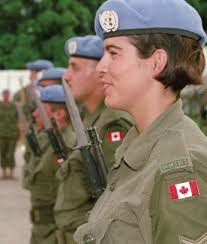
Canadian armed forces serving as United Nations Peacekeepers
But then Mr. Harper had shunned the UN and it had in turn shunned Canada, shutting us out of a Security Council seat many thought would go to Canada. We once led the world with 3300 peacekeepers in the field, today there are just 34 – down to a mere one percent of our historic past. An all-time low at a time when the demand for UN peacekeeping operations is at an all-time high.
So, in keeping with the international re-engagement Mr. Trudeau promised during the last election, his government announced a dramatic reversal of previous policy, substantially increasing both financial support ($450 million) and peacekeepers (600). Ironically this announcement came on the very day that Mr. Harper announced his resignation from Parliament and politics.
In an article in this paper three years ago, I raised the fact that the Harper government had been supporting growth for Canada’s manufacture and export of arms, noting that this comprised the sum total of his industrial economic policy. There are a large number of armament exporters in the world. The USA, Russia, France and China dominate the international market.
The United NNations 2014 Arms Trade Treaty (ATT), governs the international trade in weapons for its signatories and restricts sales to nations which use them against their own populations. Over 130 nations have signed and almost 90 ratified this treaty but China, Russia and Canada have yet to do so. In addition there are UN nation-specific sanctions and arms embargoes which must be observed by all UN member nations. South Sudan and Libya are two sanctioned nations.
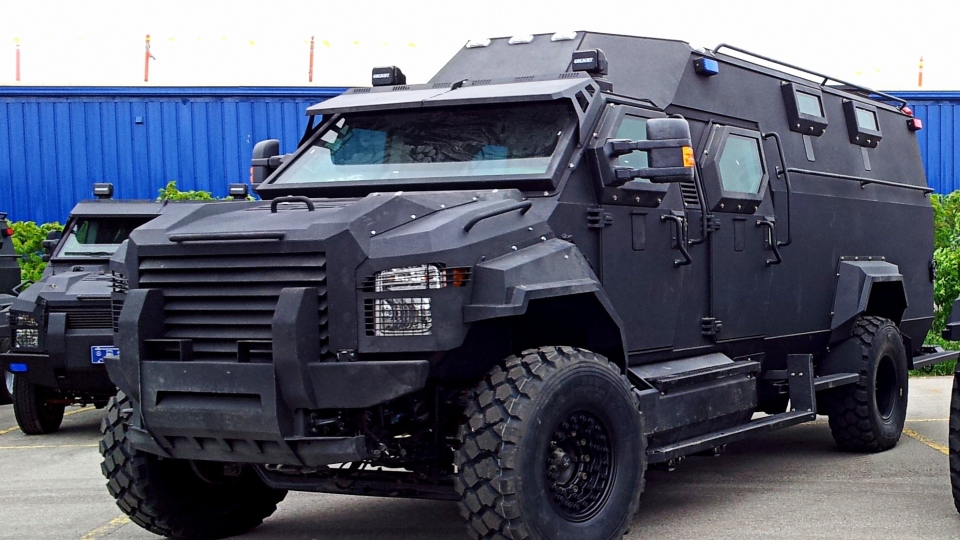
It is an ugly brute of a vehicle that can only do harm to the people outside of it.
It was an unfortunate discovery that Streit, an Ontario company, had been selling armoured vehicles through a third party in 2014 to both of these nations. The federal Liberals were caught off-guard and holding the bag left them by the previous government. This became particularly embarrassing since it followed the Trudeau government’s refusal to disallow another Harper era mega deal to sell armoured vehicles to Saudi Arabia.
That deal, worth $15 billion dollars and negotiated in 2014, would make Canada the second largest arms supplier to the Middle East, after the USA. The hypocrisy was ripe when a former Tory cabinet minister, Tony Clement, raised the issue, presumably to embarrass the governing Liberals with the tricky dilemma over this lucrative job-creating deal that his government had negotiated.
It was a tough decision. After all it is hard to call yourself a peacekeeper when you are peddling weapons of war to the very people whose cross-fire may put you in harm’s way. So there were no tears by the federal Liberals to finally see the backside of Mr. Harper as he heads off for new employment better suited to his particular skills.
I didn’t disagree with everything he and his government accomplished in their time in office – but he was a disaster in foreign affairs, and that goes for his regressive policies in criminal justice and prison management as well.
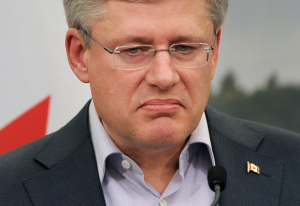
Former Prime Minister Stephen Harper.
Mr. Harper presided over the poorest economic growth rate in Canada’s modern history. His efforts to water down environmental protection notwithstanding, he never built a single oil pipeline. His fixation with petroleum contributed to the economic collapse of his adopted home province. And not least of all, we should remember how he hid in a closet during that gun fight on the Hill.
The British government recently declassified a number of papers from the Foreign and Commonwealth Office, included in a link below. These are pretty frank depictions of how the Brits viewed our leaders in the eighties – Mulroney, Turner and Pierre Trudeau. Though nobody who lived through that era should be surprised.
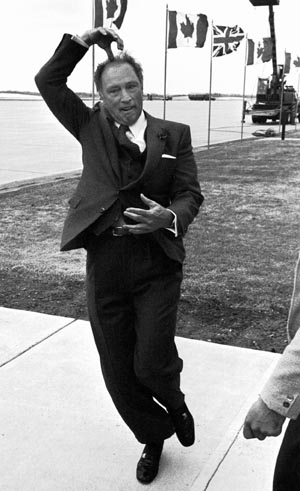
Former Canadian Prime Minister Pierre Trudeau is seen here performing a pirouette in Ottawa after the proclamation of the Constitution Act April 18, 1982.
Despite all of Pierre Trudeau’s antics and progressive (radical) policies, what most worried them was his 1984 peace campaign. It is hard to understand how his naive bopping around world capitals on what ultimately became a hopeless venture would trouble anyone. How could seeking peace be dangerous? A “bloodless and over-intellectual approach” was their bottom line.
I suspect that Canadian diplomats had some equally choice words for Maggie Thatcher, as well. In the present day I would expect someone in our Global Affairs would point out that David Cameron was even more naive than Pierre in calling that stupid Brexit vote. I wonder how today’s British diplomats regard the younger Trudeau – the darling of the international press in his first year in office. He is flamboyant, but not quite like his father.
And I wonder how those foreign eyes would sum up Mr. Harper – other than to say, as I do, goodbye and good luck.
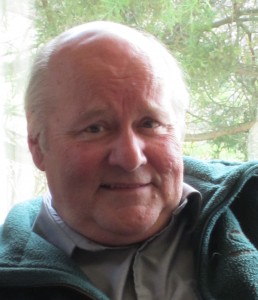
Ray Rivers
Ray Rivers is an economist and author who writes weekly on federal and provincial issues, applying his 25 years of involvement with federal and provincial ministries. Rivers’ involvement in city matters led to his appointment as founding chair of Burlington’s Sustainable Development Committee. He was also once a candidate for public office at the provincial level.
Background:
Defence Industry – Streit – More Streit – South Sudan Sanctions – Saudi Weapons – Canada Exports to Mid-East – Burlington Gazette Oct 2013 – Abandon Peace Keeping –
Back into Peace Keeping – Suez Crisis – What UK Diplomats Really Thought –




















The arms industry has been a staple of many nations since before my birth. Has anyone devised ways to re-employ these industries in productive ventures, such as clean energy? And, who are these people, if they exist and what have they proposed? Why, if proposals have been forwarded, is there resistance?
Needs editing, a bit of a jumble.